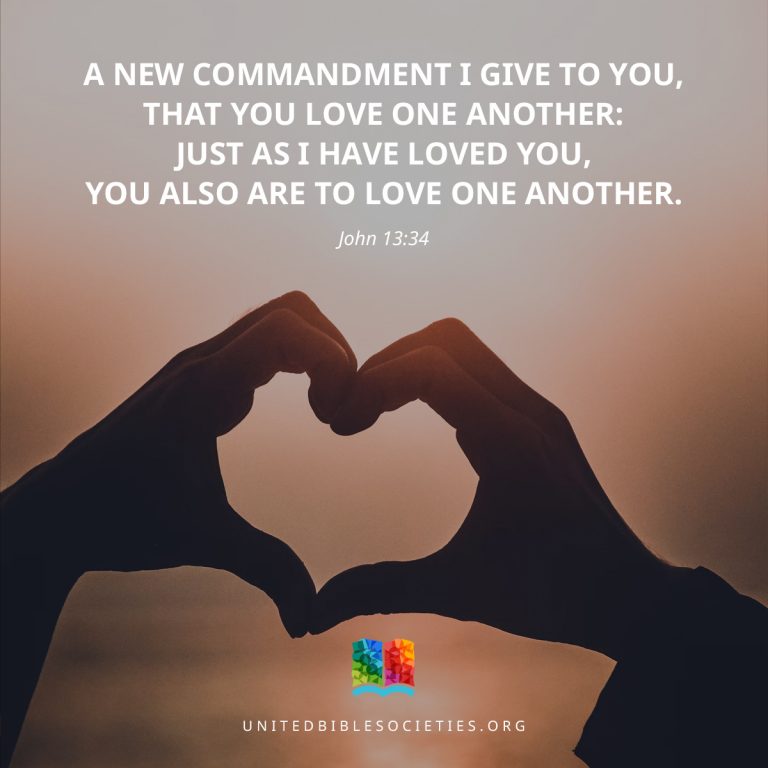1 فما هوَ فَضْلُ اليَهوديّ إذًا؟ وما هوَ نَفْعُ الخِتانِ؟ 2 كثيرٌ مِنْ جميعِ الوُجوهِ. وأوّلُها أنّ اللهَ اَئتَمَنَ اليَهودَ على أقوالِهِ. 3 فماذا إنْ خانَ بَعضُهُم؟ أَتُبْطِلُ خيانتُهُم وفاءَ اللهِ؟ 4 كلاّ! صَدَقَ اللهُ وكذَبَ كُلّ إنسانٍ. فالكِتابُ يَقولُ: «تَظهَرُ صادِقًا إذا تَكلّمتَ ومُنتَصِرًا إذا خُوصِمتَ».
5 وإذا كانَ ضَلالُنا يُظهِرُ صلاحَ اللهِ، فماذا نَقولُ؟ أيكونُ اللهُ ظالِمًا إذا أنْزَلَ بِنا غضَبَه؟ وهُنا أتَكلّمُ كإنسانٍ. 6 كلاّ! وإلاّ فكَيفَ يَدينُ اللهُ العالَمَ؟
7 وإذا كانَ كَذِبـي يَزيدُ ظُهورَ صِدقِ اللهِ مِنْ أجلِ مَجدِهِ، فَلِماذا يَحكُمُ علَيّ اللهُ كما يَحكُمُ على الخاطِـئِ؟ 8 ولِماذا لا نَعَملُ الشّرّ ليَجيءَ مِنهُ الخَيرُ، كما يَفتَري علَينا بَعضُهُم، فــيَـزعمونَ أنّنا نَقولُ بِه؟ هَؤلاءِ عِقابُهُم عادِلٌ.
ما من أحد بار
9 فماذا، إذًا؟ هل نَحنُ اليَهودَ أفضَلُ عِندَ اللهِ مِنَ اليونانيّينَ؟ كلاّ، لأنّ اليَهودَ واليونانيّينَ، كما سبَقَ القولُ، خاضِعُونَ جميعًا لسُلْطانِ الخَطيئَةِ. 10 فالكِتابُ يقولُ:
«ما مِنْ أحدٍ بارّ، لا أحَدَ
11 ما مِنْ أحدٍ يَفهَمُ،
ما مِنْ أحدٍ يَطلُبُ اللهَ.
12 ضلّوا كُلّهُم وفَسدُوا مَعًا.
ما مِنْ أحدٍ يَعمَلُ الخَيرَ، لا أحَدَ.
13 حناجِرُهُم قُبورٌ مفتوحَةٌ،
وعلى ألسِنَتِهِم يَسيلُ المَكْرُ.
سُمّ الأفاعي على شِفاهِهِم
14 ومِلءُ أفواهِهِم لَعْنَةٌ ومَرارَةٌ.
15 أقدامُهُم تُسْرعُ إلى سَفْكِ الدّماءِ،
16 والخَرابُ والبُؤسُ أينَما ساروا.
17 طريقَ السّلامِ لا يَعرِفونَ،
18 ولا مَخافةُ اللهَِ نُصْبَ عُيونِهِم».
19 ونَحنُ نَعلَمُ أنّ كُلّ ما تَقولُهُ الشريعةُ إنّما تَقولُهُ للذينَ هُمْ في حُكمِ الشريعةِ، ليَسْكُتَ كُلّ إنسانٍ ويَخضَع العالَمُ كُلّهُ لِحُكْمِ اللهِ. 20 فالعمَلُ بأحكامِ الشريعَةِ لا يُبرّرُ أحدًا عِندَ اللهِ، لأنّ الشريعةَ لِمَعرِفَةِ الخَطيئَةِ.
التبرير والإيمان
21 ولكنِ الآنَ ظهَرَ كيفَ يُبرّرُ اللهُ البشَرَ مِنْ دونِ الشريعةِ، كما تَشْهَدُ لَه الشريعةُ والأنبـياءُ. 22 فهوَ يُبرّرُهُم بالإيمانِ بـيَسوعَ المَسيحِ: ولا فَرقَ بَينَ البشَرِ. 23 فهُمْ كُلّهُم خَطِئوا وحُرموا مَجدَ اللهِ. 24 ولكِنّ اللهَ بَــرّرهُم مَجّانًا بِنِعمَتِهِ بالمَسيحِ يَسوعَ الذي اَفتَداهُم 25 والذي جَعلَهُ اللهُ كفّارةً في دمِهِ لِكُلّ مَنْ يُؤمنُ بِه. واللهُ فعَلَ ذلِكَ ليُظهِرَ بِرّهُ. فإذا كانَ تَغاضى بِصَبْرِهِ عَنِ الخطايا الماضِيَةِ، 26 فهوَ في الزّمَنِ الحاضِرِ يُظهِرُ بِرّهُ ليَكونَ بارّا ويُبــرّرَ مَنْ يُؤمنُ بـيَسوعَ.
27 فأينَ الفَخرُ؟ لا مَجالَ لَه. وبِماذا نَفتَخِرُ؟ أبِالأعمالِ؟ لا، بَلْ بالإيمانِ. 28 فنَحنُ نَعتَقِدُ أنّ الإنسانَ يتبَرّرُ بِالإيمانِ، لا بِالعَمَلِ بأحكامِ الشريعةِ؟ 29 أَفَيكونُ اللهُ إلهَ اليَهودِ وحدَهُم؟ أما هوَ إلهُ سائِرِ الأُمَمِ أيضًا؟ بلى، هُوَ إلهُ سائرِ الأُممِ. 30 لأنّ اللهَ واحدٌ يُـبَـرّرُ اليَهودَ بالإيمانِ، كما يُبرّرُ غَيرَ اليَهودِ بالإيمانِ. 31 وهل يَعني هذا أنّنا نُبطِلُ الشريعةَ بِالإيمانِ؟ كلّا، بَلْ نُثبِتُ الشريعةَ.
1 What good is it to be a Jew? What good is it to be circumcised? 2 It is good in a lot of ways! First of all, God's messages were spoken to the Jews. 3 It is true that some of them did not believe the message. But does this mean that God cannot be trusted, just because they did not have faith? 4 No, indeed! God tells the truth, even if everyone else is a liar. The Scriptures say about God,
“Your words
will be proven true,
and in court
you will win your case.”
5 If our evil deeds show how right God is, then what can we say? Is it wrong for God to become angry and punish us? What a foolish thing to ask. 6 But the answer is, “No.” Otherwise, how could God judge the world? 7 Since your lies bring great honor to God by showing how truthful he is, you may ask why God still says you are a sinner. 8 You might as well say, “Let's do something evil, so that something good will come of it!” Some people even claim that we are saying this. But God is fair and will judge them as well.
No One Is Good
9 What does all this mean? Does it mean that we Jews are better off than the Gentiles? No, it doesn't! Jews, as well as Gentiles, are ruled by sin, just as I have said. 10 The Scriptures tell us,
“No one is acceptable to God!
11 Not one of them understands
or even searches for God.
12 They have all turned away
and are worthless.
There isn't one person
who does right.
13 Their words are like
an open pit,
and their tongues are good
only for telling lies.
Each word is as deadly
as the fangs of a snake,
14 and they say nothing
but bitter curses.
15 These people quickly
become violent.
16 Wherever they go,
they leave ruin
and destruction.
17 They don't know how
to live in peace.
18 They don't even fear God.”
19 We know that everything in the Law was written for those who are under its power. The Law says these things to stop anyone from making excuses and to let God show that the whole world is guilty. 20 God doesn't accept people simply because they obey the Law. No, indeed! All the Law does is to point out our sin.
God's Way of Accepting People
21 Now we see how God does make us acceptable to him. The Law and the Prophets tell how we become acceptable, and it isn't by obeying the Law of Moses. 22 God treats everyone alike. He accepts people only because they have faith in Jesus Christ. 23 All of us have sinned and fallen short of God's glory. 24 But God treats us much better than we deserve, and because of Christ Jesus, he freely accepts us and sets us free from our sins. 25-26 God sent Christ to be our sacrifice. Christ offered his life's blood, so by faith in him we could come to God. And God did this to show that in the past he was right to be patient and forgive sinners. This also shows that God is right when he accepts people who have faith in Jesus.
27 What is left for us to brag about? Not a thing! Is it because we obeyed some law? No! It is because of faith. 28 We see that people are acceptable to God because they have faith, and not because they obey the Law. 29 Does God belong only to the Jews? Isn't he also the God of the Gentiles? Yes, he is! 30 There is only one God, and he accepts Gentiles as well as Jews, simply because of their faith. 31 Do we destroy the Law by our faith? Not at all! We make it even more powerful.



